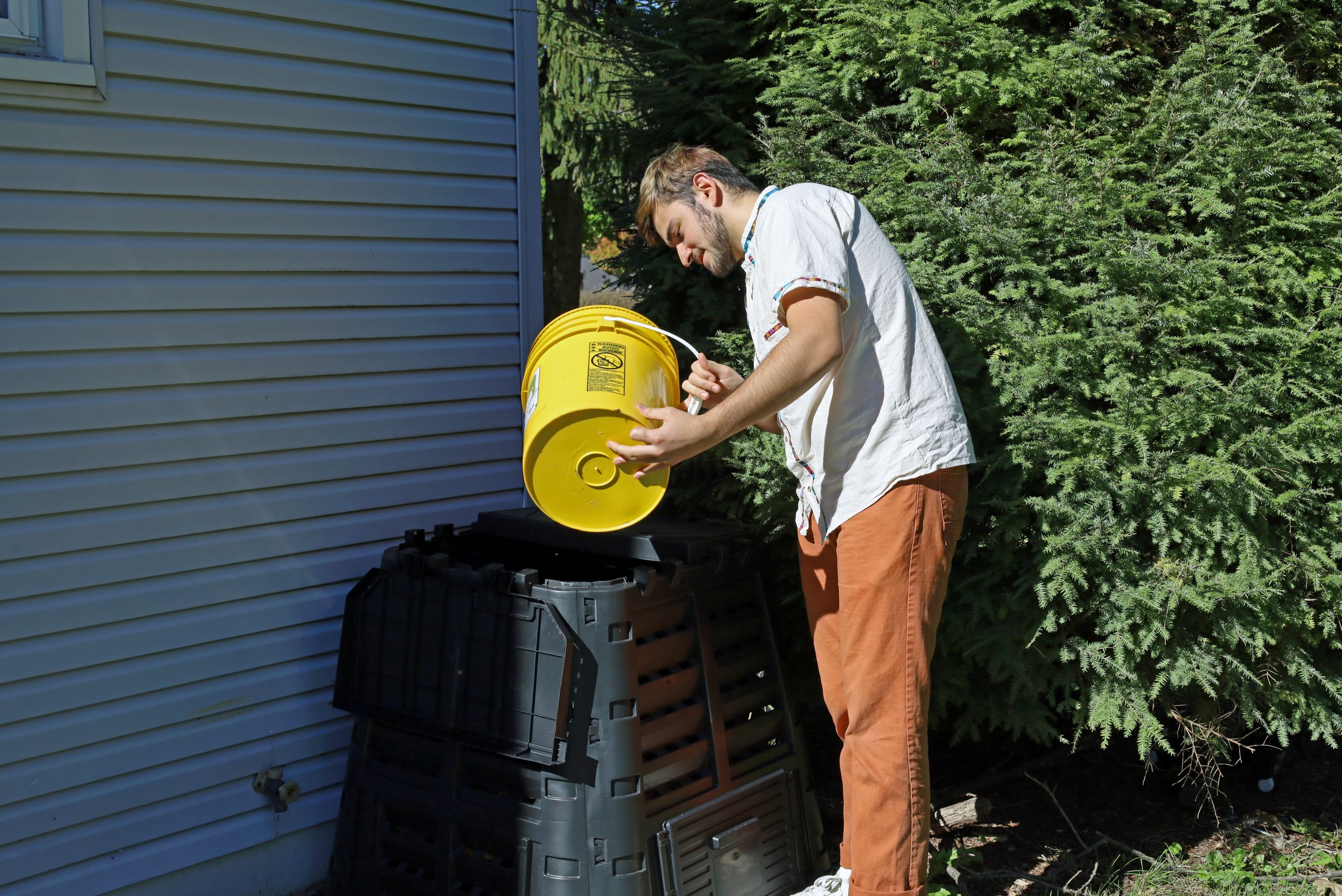Composting, although absent from the majority of campus this year, is back for the 29 students who live in Goshen College’s Intentional Living Communities (ILCs).
Composting was first introduced to Goshen College in 2010, thanks to a joint effort between EcoPax and the Physical Plant. According to a Record article from 2009, approximately 950 pounds of compostable material were being thrown in the dining hall trash every day, and students felt compelled to take action.However, after almost two years of a global pandemic, which changed how the dining hall operated and contributed to short-staffing at the Physical Plant, composting is no longer available to the majority of students. That is, unless you are living in East Hall, Kenwood House or Howell House, the three on-campus houses located behind the dorms and on Eighth street.
“We were really annoyed that there was no system in place for composting,” said Anna Osborne, a resident at East Hall and a junior environmental science major. “Especially because the Rott doesn’t have [composting] anymore, it was kind of like ‘Okay, no one is composting.’”
The composters were purchased after students at Howell House learned that they could no longer take their compost to the large composters behind the Physical Plant.
Gretta Rempel, an assistant residence director who lives in Howell House, asked Residence Life about the possibility of buying new composters for each house.
According to Chad Coleman, director of student life operations, deciding to buy the composters wasn’t a hard decision.
“The ILC program has been a natural conduit for sustainability on campus,” Coleman said. “I felt it was important to have the option to manage composting in a large group house setting like an ILC — and it fit the program’s ethos quite well.”
Each house received a black 110-gallon composting bin made out of recycled plastic on Oct. 11, which uses aeration to transform food scraps into soil. The bins cost around $170 on Amazon.
“I purchased all three composters with the residence life budget,” Coleman said. “Hopefully, they can be maintained well and used for multiple years.”
Although East Hall, Kenwood House and Howell House are now able to compost their food, there are hundreds of students living, cooking and producing food waste in the Octavio Romero Student Apartments and in Kulp Residence Hall. These students, who don’t have backyards, still aren’t able to compost their food scraps.
“Everything that we have goes in the trash,” said Emma Burton, a senior physics major who lives in the apartments. “It’s definitely not ideal, but at this point, composting on our own is too complicated.”
Rachel Mast, a sustainability studies major who also lives in the apartments, transferred to GC this year from Gordon College. She has noticed how differently the two campuses handle composting.
“At my old school, there was a composting program in the apartments,” Mast said. “Everyone would take those [composting] bags to a dumpster behind the apartments and then a separate company would come pick it up and compost it professionally.”
Mast received a paid internship to work with composting at Gordon, and she thinks that Goshen should incentivize students to work with composting in a similar way.
Other schools, like Eastern Mennonite University (EMU) in Harrisonburg, VA, have made working with compost a paid position. At EMU, transporting the compost from residence buildings to the campus composter is considered a work-study position.
Aside from being good for the environment, composting has other benefits.
According to Katy Thornthwaite, a senior music education major who lives in Kenwood House, when the house was throwing their food scraps away with their trash, they “had a fruit fly issue.”
Now, they are thankful for the new composter, which they have rigged up with string so that you can easily pull open the lid and dump your scraps while standing on the back porch.
As for what other students should do with their food scraps, Olivia Koop, a junior biochemistry major living in Howell House, offered a solution.
“Collect the compost yourself in your room,” Koop said, “and then, when it’s full, bring it to Howell, or one of the other ILCs that have their own composting bin!”




